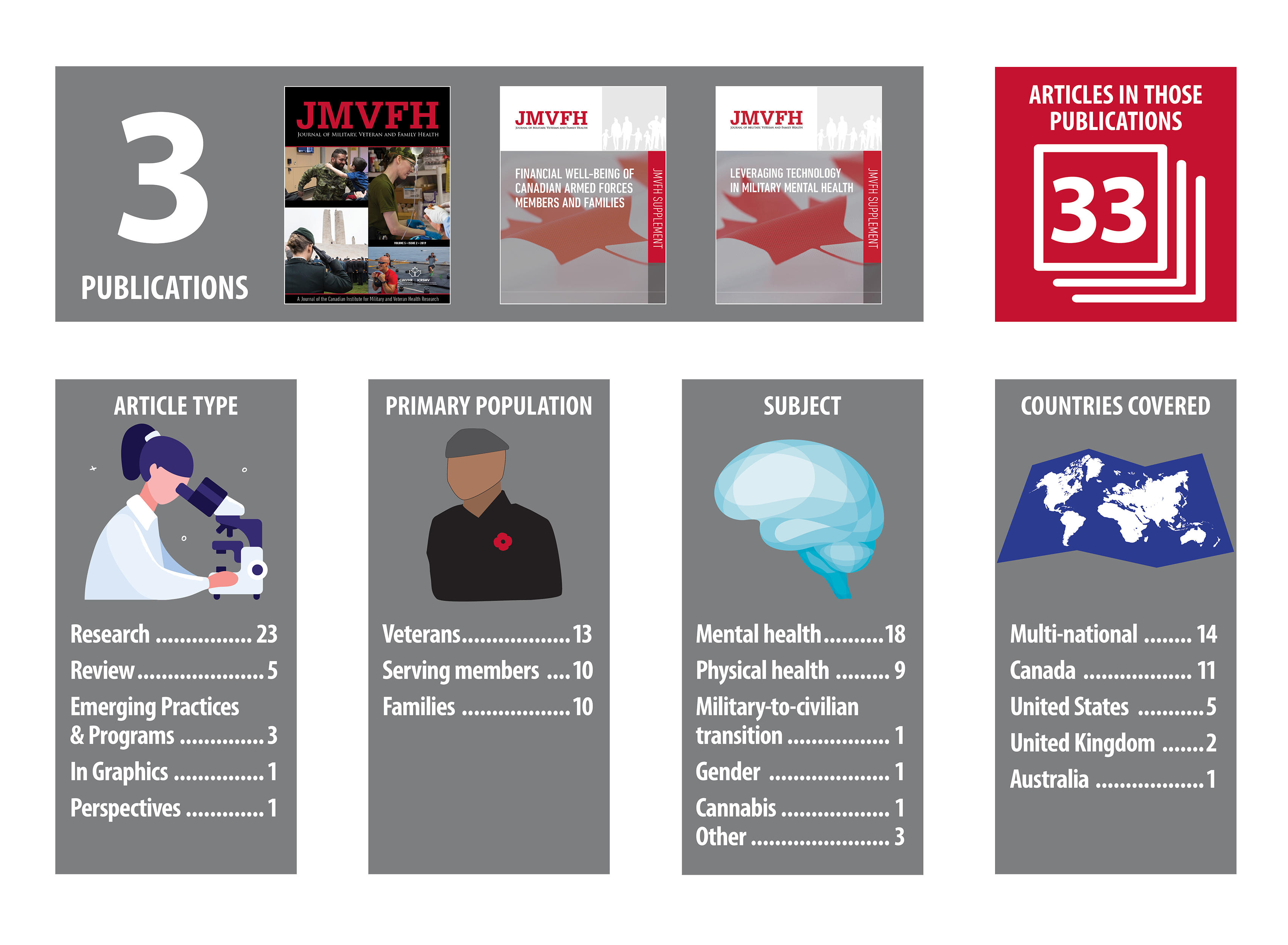Leveraging Technology in Military Mental Health
This special edition of the Journal of Military, Veteran and Family Health was developed to reflect the ongoing work of the NATO Human Factors and Medicine Research Task Group 279. Experts from Australia, Canada, the Netherlands and the United States contributed content on the topics of big data/machine learning, neuroimaging/biomarkers, genomics, mobile and online interventions, simulation and serious gaming, and neurostimulism.
The rapidly advancing technology sector represents the greatest opportunity for progressing military mental health in over a century. Across the NATO alliance, military partners are contending with a significant mental health burden and leveraging advances in technology is one aspect of an ongoing and concerted effort to mitigate the devastating effects of mental illness on the military and Veteran populations. Mental health appears to be on the cusp of a new era, one in which big data, biomarkers, neuroimaging, mobile and online interventions, simulation and serious gaming will likely augment, or replace, conventional approaches across key domains of military mental health.
The technologies described in this special edition are examples that demonstrate potential advances in the field of military and Veteran mental health. This supplement serves as the first of what is intended to be many conversations aimed at accelerating the evolution of mental health care and an opportunity to embrace and leverage technology to better understand and care for military members and Veterans suffering with mental health conditions.
“Stepping up to the plate”: Identifying cultural competencies when providing health care to Canada’s military and Veteran families
In issue 5.2 of the Journal of Military, Veteran and Family Health, Linna Tam-Seto et. al, identified four cultural competency domains employed by health care providers working with Canadian military and Veteran families: awareness, sensitivity, knowledge and skills.
Few occupations expose the majority of employees to recurring geographic relocation, relentless separation and elevated levels of risk as a matter of course throughout their careers. Military members, Veterans, and their families are united by the shared experience of living within a distinct culture, and military cultural competency among health care providers is required to better support the needs of military and Veteran families in Canada.
This study sought to address gaps in current Canadian literature by conducting in-depth interviews about military cultural competency with nine health care providers. It found that participants recognized the military as having its own distinct culture and were motivated to provide health care to meet the unique needs of military and Veteran families. Participants described employing specific skills when treating military families, such as building a trusting relationship, being creative and flexible during care, and remaining neutral and non-judgmental during conversations.
Frequent mobility was named as the main cause for disruption and fragmented maintenance of health care services. Familial separation due to training or deployment was also noted as impacting the health of military and Veteran family members.
Participants cited a lack of formal education and training specific to this population, pre-determined perceptions of military families based on U.S. sources of information, and delays in transferring health records from one practitioner to the next as barriers to adequately serving military and Veteran families.
This study adds to the understanding of military and Veteran family health care experiences in Canada and makes an important contribution to developing a body of knowledge in an area where little is known.


